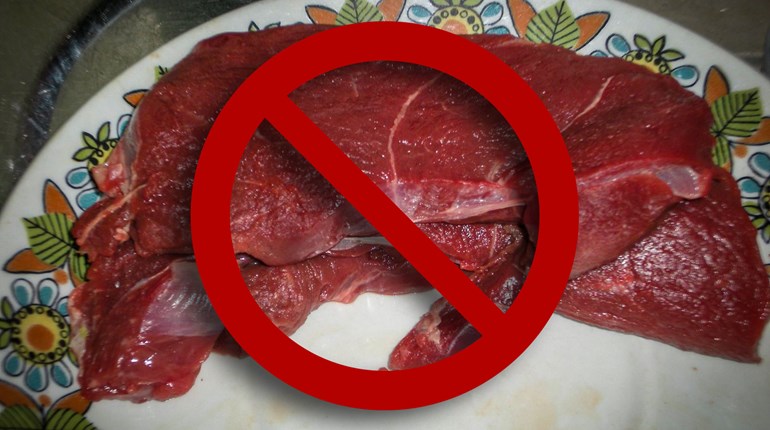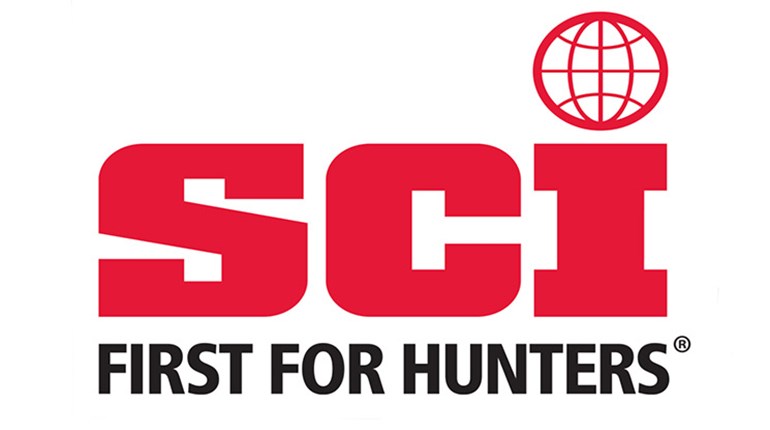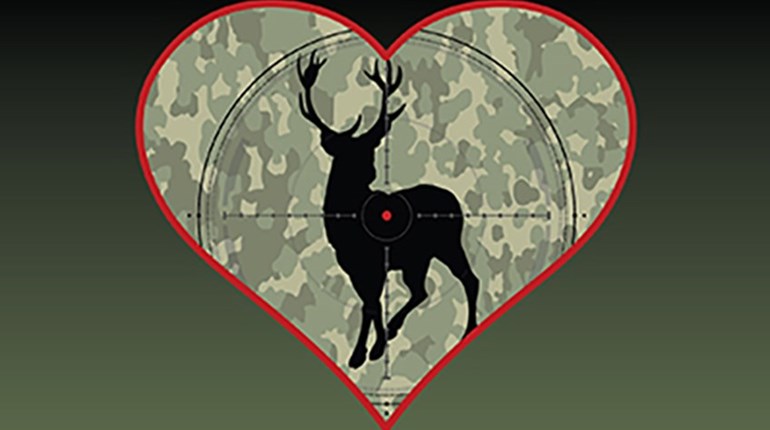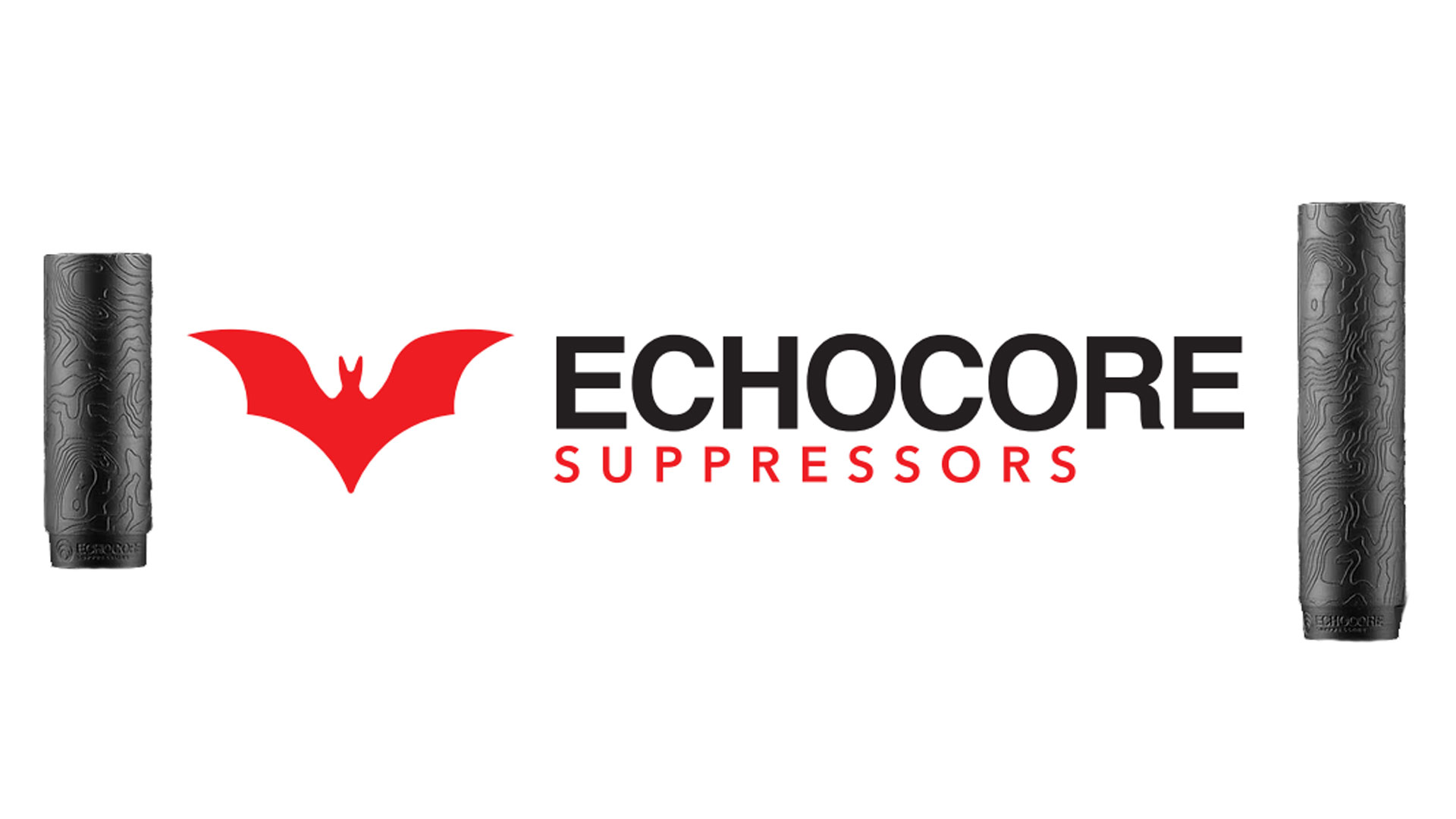By Rick Berman, Executive Director, Center for Consumer Freedom
If a hunter were to be injured by an animal he was hunting, not many people would call it a form of “justice.” But that’s exactly the view that has been espoused by Wayne Pacelle, head of the Humane Society of the United States (HSUS). While many in the hunting community are well aware the HSUS is just a slicker version of People for the Ethical Treatment of Animals (PETA), the extent of HSUS’ wealth and its potential to be a political threat is largely misunderstood.
Pacelle has said he wants to turn HSUS into a National Rifle Association of the animal-rights movement, which has the avowed goal of stopping hunting, animal agriculture and other uses of animals. The key to fighting HSUS lies in understanding its base of support—achieved through deception—and its piecemeal political strategy to move the goalposts.
From what we eat to what we wear to especially what we come home to, animals play an important part in our lives. According to the American Veterinary Medical Association, 56 percent of households have a pet, and the pet industry generates more than $50 billion annually.
It is no surprise then that the image of helpless pets scarred by abuse and neglect arouses strong nurturing instincts. And it is no surprise that groups purporting to fight animal cruelty feature such images in commercials soliciting donations. HSUS’ annual budget of about $130 million testifies to the power of this human sentiment.
And it is precisely the nobility of their unwitting donors that makes HSUS’ actual purpose and agenda so wicked by contrast.
Despite having a name similar to the 1,000-plus groups providing animal care nationwide, the HSUS is not affiliated with your local pet shelter. It does not run pet shelters of its own. It does not promote “animal welfare” as the phrase is commonly understood. HSUS differs from PETA and other more radical animal-liberation groups only in its public-relations savvy and short-term strategy. Hunters, farmers, pet owners, anyone who wears leather or enjoys the circus and the 99 percent of Americans who are not vegans are all targets of HSUS’ long-term campaign.
The Less Than 1 PercentersHSUS intentionally capitalizes on the confusion it creates about its mission. The vast majority—85 percent in a two-year review—of the animals shown in HSUS commercials are dogs and cats. And those images have helped to shape public opinion about the group. A poll by ORC International found that 82 percent of Americans wrongly believe HSUS “is an umbrella group that represents thousands of local humane societies all across America.” A full 69 percent mistakenly believe HSUS “contributes most of its money to local organizations that care for dogs and cats.”1 This is the font of support that keeps HSUS so well-funded.
The truth is, if HSUS dispersed most of its money to local humane society groups, it could finance shelters for stray and abandoned animals in every state. When fundraising, HSUS advertises the fact that millions of dogs and cats are euthanized in shelters every year. Just spending half of the $131 million it raised in 2011 would have saved many of those animals from premature death. But in that year—the most recent reported data—HSUS tax returns show it contributed less than 1 percent of donor funds to pet shelters. In the same year, it put another $2.4 million into its own pension fund—far more than it contributed to shelters nationwide.2
This financial dishonesty is nothing new. HSUS CEO Wayne Pacelle started attracting negative attention when he made a full-court press in the media to raise money to aid animals, particularly pets, after Hurricane Katrina. HSUS raised about $34.6 million under the pretense of helping displaced animals. But 2005 tax records show that it dispersed only $8.6 million in grants worldwide, including Louisiana.3 A Huffington Post columnist quipped, “If you care about starving creatures, you’re probably better off grinding your dollars into a nutritious paste and feeding them directly. This may not be the best use of dollars, but at least all of them would be guaranteed to reach the animals.”
It’s hardly shocking then that the American Institute of Philanthropy (AIP) gives HSUS a “D” rating for spending fistfuls of cash with their fundraisers to churn out fundraising appeal after fundraising appeal.4 AIP’s president has said, “If you like getting those mailings and want to pay for more of them, support the Humane Society [of the U.S.].” (One of the few services that does give HSUS good marks is the Better Business Bureau’s Wise Giving Alliance. However, the WGA takes money from charities it rates—$15,000 a year in the case of HSUS.)5
Fundraising aside, what programs does HSUS fund with all the money it gets by tugging at your heart strings? Quixotic political causes, for starters. The focus on political activism means HSUS does more to keep lobbyists, lawyers and professional agitators well-housed and fed than it does stray dogs. The individual issues can sound obscure and even deliberately boring, like HSUS’ campaign to eliminate hen cages (which help protect the birds from disease and predation) or ban lead shot in hunting. But don’t miss the bird’s-eye view: HSUS’ strategy is to overthrow humanity’s relationship with animals—but in incremental steps. To that end it lobbies to pass laws making animal farming or hunting more expensive and more difficult.
In 2009, for example, HSUS spent just over $1,500 in grants to pet shelters in Ohio.6 Yet it earmarked $1.7 million to engage in a political battle over Ohio’s Livestock Care Standards Amendment the next year.7 HSUS was offended that Ohio would appoint a commission to govern livestock standards composed of only farmers and veterinarians rather than animal-liberation activists. It demanded new regulations intended to bankrupt Ohio farmers and dog breeders—and even to prevent the circus from coming to town.
Is that what donors to this charity think they are getting? Do they really understand they may be sending millions more to anti-agriculture activism than to pet shelters?
Animal Rights, Not Animal WelfareHSUS is staffed with veterans of more straightforwardly radical animal-liberation groups. HSUS CEO Wayne Pacelle formerly led the Fund for Animals, an anti-hunting group that merged with the HSUS in 2005 soon after Pacelle took the reins. Pacelle got started with animal-rights activism by sabotaging hunting. He was arrested in 1986, while still a student at Yale, for harassing hunters. “I asked the hunters, ‘How can you eat Thanksgiving dinner today with blood on your hands?” Pacelle told the Associated Press.
As a student, Pacelle helped lead a protest of Yale’s deer hunt. In his view, “Animals are no one’s property, and they have the right not to be ‘taken,’ ‘harvested,’ or ‘culled’ or any other euphemism for murder that wildlife managers use.” He told the media about a “satirical” play that activists would perform in which hunters were themselves hunted. Bizarrely, it was in his Yale years that Pacelle wrote in the school newspaper, “I don’t love animals or think they are cute.”
Five years after his Yale arrest, as national director for the Fund for Animals, Pacelle conducted a campaign against hunters in the Rocky Mountain West. He told the Associated Press, “... if we could shut down all sport hunting in a moment we would.”
HSUS has an official position on hunting that reads almost exactly like Pacelle’s early position. The organization says it “works to end the worst abuses in hunting and maintain longstanding protection for animals where they already exist.” HSUS carefully avoids saying what it would do, “if we could.” But its well-funded campaigns to ban all lead ammunition in hunting give just a hint of what it would do. Like most of its campaigns the idea is to raise the cost, as non-lead hunting ammunition is significantly more expensive, to drive hunters from the sport.
HSUS is also campaigning to shut down private hunting ranches, which have been successful in increasing populations of exotic animals that are extinct or nearly extinct in the wild—namely the scimitar-horned oryx, addax and dama gazelle—by using the proceeds from hunting a small number of them to grow the overall herd.
But that doesn’t matter to HSUS. It is ideologically opposed to hunting, even if it’s helping endangered species. HSUS and its allies have gotten the U.S. Fish and Wildlife Service to require a federal permit to hunt these species—which effectively could reduce these populations to nothing in 10 years, according to the Exotic Wildlife Association.8
HSUS vice president Paul Shapiro began his career in activism by founding Compassion Over Killing (COK), a radical animal-rights group in the mold of PETA. COK was known in the Washington, D.C., area for targeting fur-seller Miller’s Furs with harassment. Under Shapiro’s leadership COK’s official magazine, The Abolitionist, was a vehicle to recruit activists, running a recruitment notice for the MF-ALF, which stood for Miller’s Furs-Animal Liberation Front. (The ALF has been labeled a domestic terrorist group by the FBI.) Disingenuously, this recruitment notice had a disclaimer at the bottom: “This article is for entertainment purposes only. COK does not endorse (nor condemn) any illegal acts.” Shapiro and other COK alumni were recruited to HSUS, and now this former instigator is the “expert” who dictates the minutia of HSUS livestock standards to farmers.
HSUS’ food policy director is Matt Prescott. Is he an expert farm veterinarian? Of course not. He is a PETA veteran and was the man behind that group’s offensive “Holocaust on Your Plate” campaign. As you can imagine from the title, Prescott compares the food industry to the system of work- and death-camps run by the Nazis to exterminate Jews. “We’ve kept the systems and the attitudes, just changed the victims,” according to Prescott. To make it as clear as possible, he said, “Anybody who eats meat ... is guilty of holding the same mindset that allowed the Holocaust to happen.” Those tasked with preserving the memory of Nazi atrocities were horrified at his use of documentary photographs in PETA’s campaign. Now, at HSUS, he has perhaps kept the attitudes, just changed the scenery.
Idolizing VeganismThe ultimate goal of animal-liberation groups is to stop the use of animals by people. Most uses of animals today involve food production, whether meat, dairy or eggs.
Prescott’s high position at HSUS highlights another little-known facet of the group. Although vegetarianism and other alternative diets continue to grow in popularity, 99 percent of Americans do not meet the dietary standards of HSUS, which is now a vegan activist organization. HSUS’ former vice president for farm animal issues, Miyun Park, admitted as much, saying, “we don’t want any of these animals to be raised and killed [for food] ... we work on promoting veganism,” meaning a diet free of animal products. Shapiro has added that “nothing is more important than promoting veganism.” CEO Pacelle was the person who implemented a vegan office policy soon after he took over HSUS.
This was a change for the group, whose previous presidents were not vegetarians and who had provided consumer guides to steer shoppers to meat producers who implemented “humane” techniques in their businesses. Since Pacelle took charge of HSUS, its guides are dedicated to promoting veganism. All food recipes on its website are vegan. Not even one uses an animal product, no matter how organic it may be or how free the range was for the producing hen.
Shapiro spoke at the “Animal Rights 2012” conference in Washington, D.C., and made it clear that “humanely raised” animal products is an oxymoron:
“For basically every animal product out there, we need to show people that there is an easy, delicious, and convenient alternative. If it’s pigs they want to eat, let them eat pig products that are made from plants. If it’s chicken, let them eat plant-based chicken products. If it’s turkeys, let them eat these plant-based turkey products, including Tofurky.”
“Pig products that are made from plants” is activist-speak for dishes made of seaweed and treated wheat gluten.
HSUS pursues its vegan strategy on two fronts. First there is its evangelization, with things like its pamphlets and recipe guides. But the other side of it is the political activism mentioned above, aimed at increasing the price of meat, dairy products and eggs. One surefire way to make Tofurky appealing is to make turkey prohibitively expensive in comparison.
Goodbye FidoIf it isn’t yet obvious, HSUS’ dishonest form of activism really hurts pets. Well-meaning people give the group money thinking it will provide food and shelter to abused animals. When shelter professionals were polled in 2011 by the website HumaneWatch.org, 71 percent of them agreed that HSUS “misleads people into thinking it is associated with local animal shelters.”9 The false impression that HSUS deliberately cultivates actually diverts money from animal shelters people want to support to the legal activism they likely do not.
That’s ironic given the sentiments of HSUS leader Wayne Pacelle, who seems to fall on the side of the animal-rights movement that is against companion animals in the abstract, if not in the immediate near term. He has said, “I don’t want to see another cat or dog born,” and has noted, “there’s no special bond between me and other animals.” Like its stance on animal products in the human diet, or its official stance on hunting, HSUS’ stance on pets may start out as one of targeting specific acute abuse, move on to wide-ranging punitive regulation and end in a total ban.
What comes to mind when the average person thinks of the Humane Society of the United States? Does he think of people who harass hunters, encourage extreme action against clothing stores, want to make Tofurky the Thanksgiving staple and long for a day when no cats or dogs are born?
Its very name—the Humane Society of the United States—implies this group aims at an improvement of man’s relationship with animals. But what it wants is the radical reform of almost all human society. It would end the practice of hunting “overnight” if it could. It would put every rancher and dairy farmer in unemployment lines. It would take sausage and eggs off breakfast plates.
Adding to the deception is HSUS’s tactic of appearing to be backed by those it opposes. In a 2010 ballot campaign in North Dakota to ban so-called high-fence hunting, HSUS’ lobbying arm used hunters in ads as a front to disguise its anti-hunting beliefs. This is a similar tactic to environmentalists forming or funding “sportsmen’s” groups like the Theodore Roosevelt Conservation Project and Trout Unlimited. HSUS is also using a similar tactic in agriculture, forming state councils of “humane” farmers. It’s a classic divide-and-conquer strategy.
How long can an outfit like HSUS continue to operate? HSUS was founded in 1954 and its success in raising funds has been mostly recent. But the current regime is also facing increasing scrutiny. HSUS is a defendant in federal litigation filed by Ringling Bros. circus owner Feld Entertainment, which alleges that HSUS and two of its in-house attorneys took part in a witness-payment and bogus-litigation scheme. State political leaders, such as Nebraska Gov. Dave Heineman, have spoken bluntly against HSUS’ agenda. Six congressmen sent a letter to the IRS Inspector General asking for an investigation into whether the group has violated its tax-exempt status by getting involved in excessive lobbying.
HSUS has a sizeable brand. But the bigger they are, the harder they fall.
The Center for Consumer Freedom is a nonprofit coalition supported by restaurants, food companies and consumers to promote personal responsibility and protect consumer choices. Visit HumaneWatch.org to learn more.
1. ORC International poll of 1,011 adults, April 11-14, 2013. Margin of error ± 3%.2. HSUS IRS Form 990, 2011. Available online at Guidestar.org.3. HSUS IRS Form 990, 2005.4. CharityWatch Watchdog Report, May 20135. “BBB’s charity ratings, seal of approval under fire,” USA Today, 12/27/126. HSUS IRS Form 990, 2009.7. HSUS IRS Form 990, 2010.8. “Can hunting endangered animals save the species?” 60 Minutes, June 10, 2012.9. Online poll of 1,010 self-identified HSUS donors conducted April 21-25, 2012. Margin of error ± 3.1%.





































